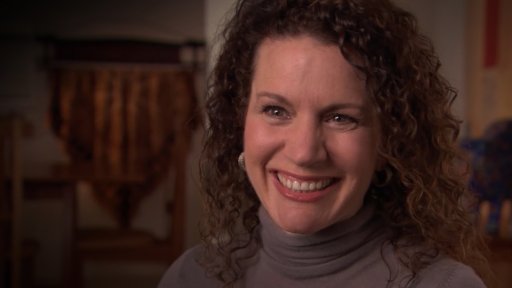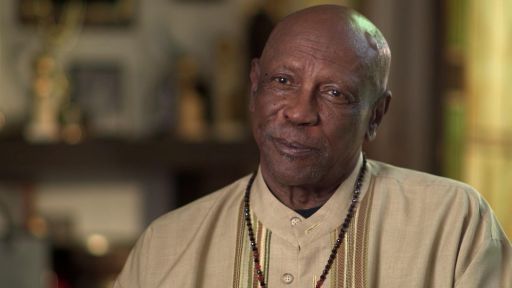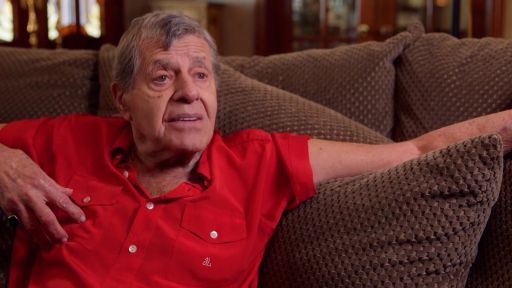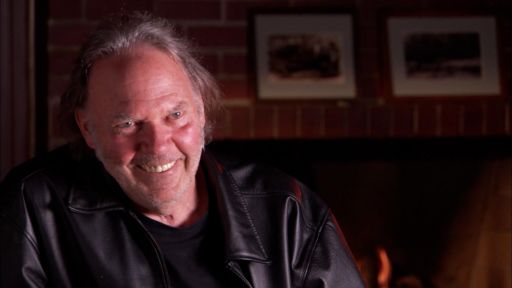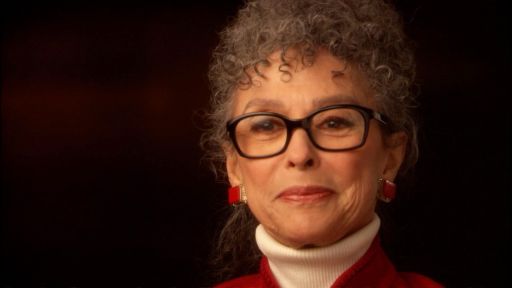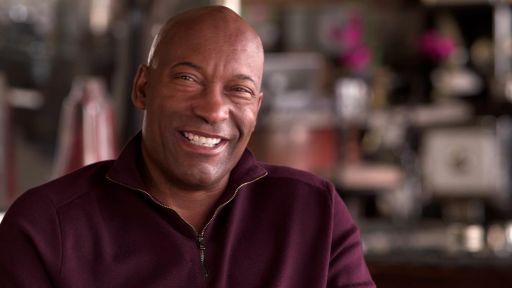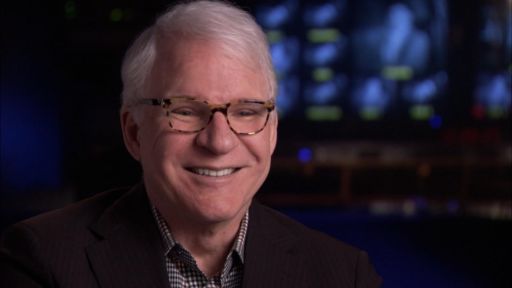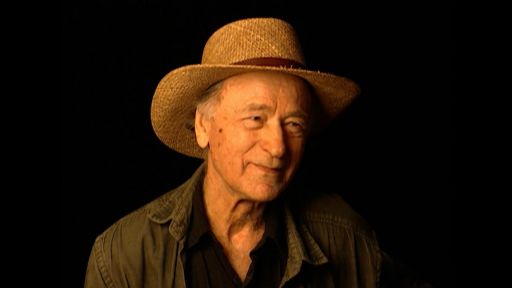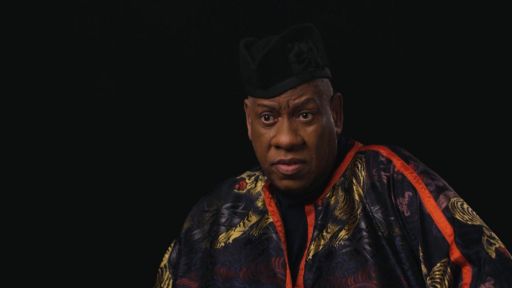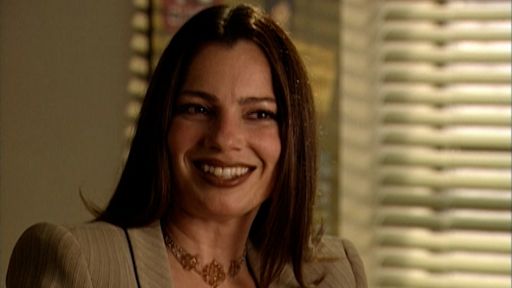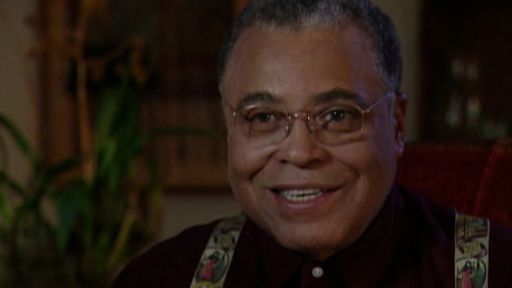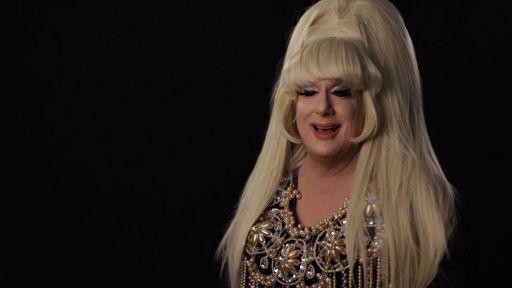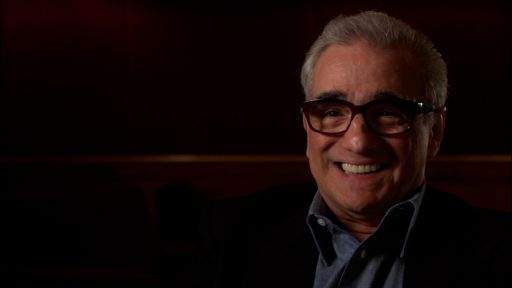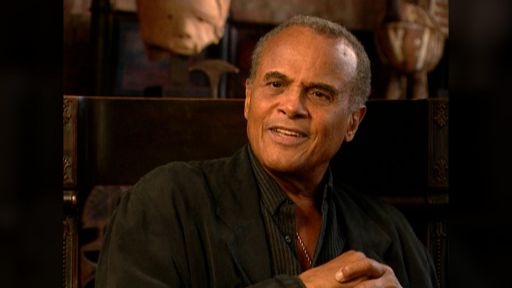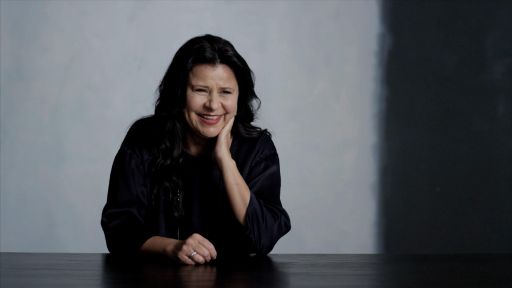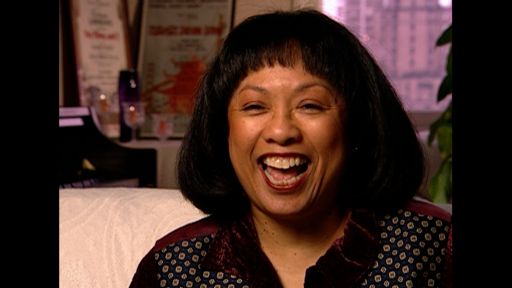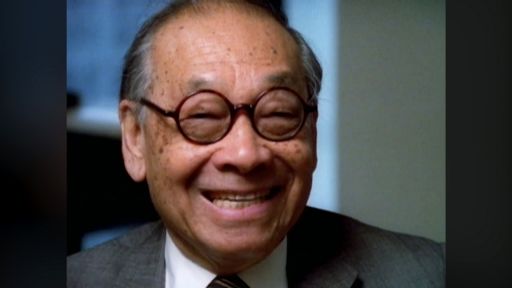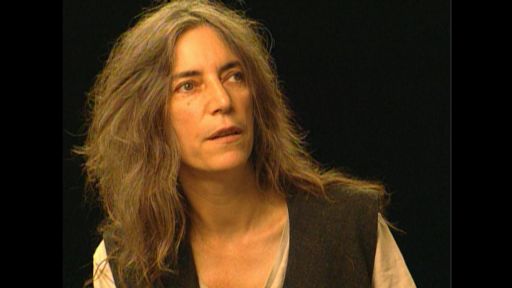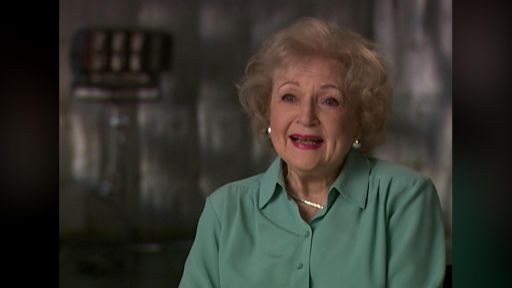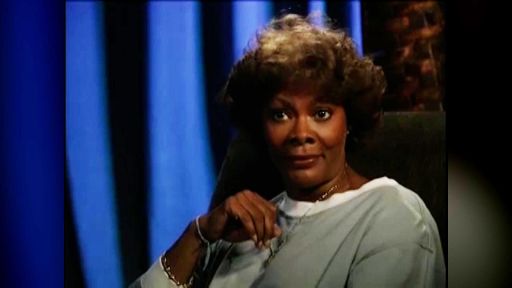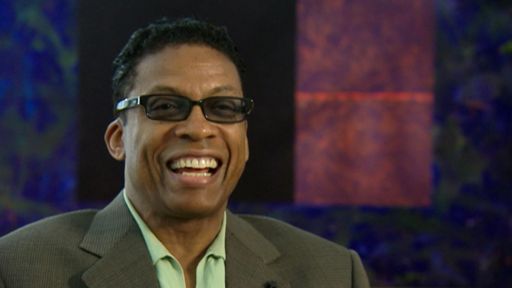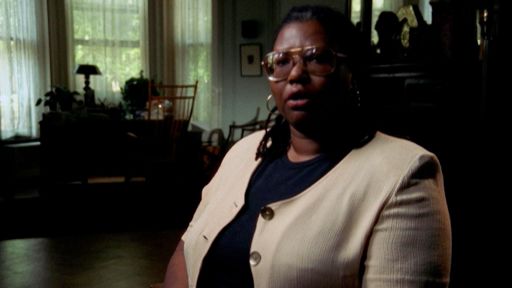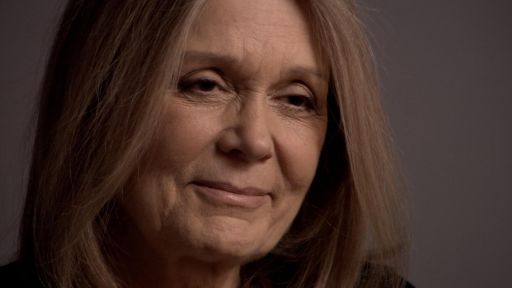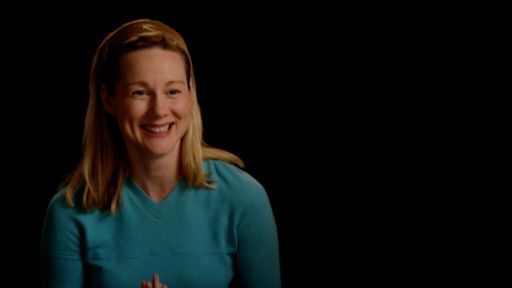TRANSCRIPT
- The first Broadway show I saw was "Mr.
Wonderful," starring Sammy Davis, Jr., Jack Carter and Lily Pons.
See, wow, this means a lot to me.
My dad was friendly with a theater critic for the New York Daily News, a man named Doug Watt, and we had these great seats, we were actually in the front row.
And I'm nine years old, and the lights go down, the music started, the overture.
♪ What a feeling, what a glow ♪ (Billy vocalizes) And then the curtains open, and he walked out, and the crowd went crazy.
And I looked at him, and it was the first experience with seeing a star walk out on stage.
It's very different when a star walks out on stage, and he was very much a star, and he looked amazing.
And he's in a spotlight.
I remember thinking I wanted that to be me.
And that excitement of seeing him just really was like, I still think about it, and I get excited about it, that I saw him at such a young age.
I also saw Mickey Mantle that year for the first time.
So I saw like these two giants at their peak of young stardom at spectacular moments.
And so I'll never forget that.
And I told him that several times.
And he always said that for him the two keys were walking in a room and walking out, the rest is gravy.
So I met him before I met him.
I was about to get married, and I'm picking up my tuxedo in a shopping center called Roosevelt Field.
Sammy was playing the Westbury Music Fair, so I knew he was in town, but I couldn't afford to go to see him.
And I had a kinship with him.
One, I just thought he was the greatest talent I'd ever seen.
He was our Michael Jackson plus.
He could do everything.
And my uncle had produced some of his records, especially his first gold record, which was "Hey There."
So I'm picking up a tuxedo, and my intended wife and I are there, and Sammy's walking with George Rhodes, his conductor, right past us.
And he's wearing thigh high pirate boots with like patchwork leather, different colors.
And he's just walking through Roosevelt Field, and people are looking at him, cause you don't see many guys wearing patchwork thigh-high pirate boots.
And I thought, I gotta talk to him.
I gotta say hello for my uncle, I said.
He goes into a camera shop 'cause he was a camera freak as I would find out.
And George Rhodes is standing outside, and I introduced myself.
I said, my name is, and my uncle was Milton.
He goes, oh, I know Milt real well.
Milt Gabler.
Yeah, producing, it's like I'd like to say hello to Sammy.
He says, go ahead.
So I opened the door to the camera shop.
Sammy is now behind the counter with the owner of the store talking about cameras.
And he's pulling and looking.
And I just started like a bit, I said, excuse me.
And they both turned around, and I said, my film was supposed to be ready on Tuesday, and it's now Friday, and it's not here.
And Sammy, without missing a beat, goes, what's the name?
And it was like, great.
And then we both laughed, and I introduced myself, and he couldn't have been nicer.
It was like spectacular.
- [Interviewer] Wow.
- So that was like 1969.
So flash forward a bunch of years, and I'm working with him, and I'm his opening act, and I really couldn't believe it.
- [Interviewer] When did you encounter Sammy again?
And how did it come about that you were his opening act?
- Okay, I get a job opening for Sammy in Lake Tahoe.
We're gonna be there for a month together.
And so my manager, David Steinberg, was Sammy's PR man for a long time.
And so this thing happened that we could work together, and Sammy called it a shidduch, which is Yiddish for.
And so I fly in the night before, and we have dinner together, and I meet him backstage.
He had settled his dressing room.
He had hung all his pictures.
He made the dressing room his home.
And there were beautiful photographs that he had taken of like Elizabeth Taylor and Marilyn Monroe, James Dean.
I mean, the cat knew everybody, and we're walking in the hallway.
And I remember he was wearing like a cape.
It was like a, it was like a Sherlock Holmes kind of cape.
It was weird 'cause it was the summer, and he turned to me, and I'm following him, and I'm just like this is the same way I followed him in Roosevelt Field when he went to the camera store.
And he turns to me, he says, "Always follow the brown line."
There were tapes on the floor that led to different parts of the bowels of the hotel which led us to this private elevator.
Took it up to the suite, which was, he had designed, and it was like a James Bond suite.
I mean, it was basically, he'd do that, and the screen would come down and cover up, you know, the bad Grand Canyon picture.
And then, you know, it was like, it was amazing.
And it was also like 98 degrees.
It was really hot.
He liked it very hot.
And then on the second floor, he had turned his bedroom into a kitchen 'cause he loved to cook, and he was making soul food.
And he had all of these videotapes on a table, every movie you could possibly imagine.
And he was cooking up this big pot of stuff.
And he put a bandana on his head, and he just, and as he's stirring this pot, I'm telling you, chicken feet like going around the pot, and I know I gotta eat this stuff.
And he's making greens.
And I never had that food before.
But, you know, my grandmother boiled the chicken until it had no flavor.
But this stuff's going in, and he put it on this, here, go ahead.
And I just sort of nibbled at it.
And he said, "What's the matter, pal?
"You're not into greens."
(Billy laughing) But what I thought was interesting cause I was like amazed that I'm gonna open for him cause this was, this was Mr Show Business.
Forget about it.
He was amazing.
He was lonely.
He was all alone there.
There was nobody else.
He had this wonderful man that took care of him named Murphy.
But yet he was there alone in this huge suite.
He had a collection of movies, at that time it was VHS's upstairs, like hundreds of them.
And a monitor that he would just sit alone and watch movies all night.
He stayed up all night, slept during the day, and then got back and, you know, to do the show.
So we get to opening night, and I'm gonna do 30 minutes, and I come out on stage.
And now that was my only meeting with him, you know, that was it.
That was like really the first time we had met, you know, and talked.
And it was great.
And I do my 30 minutes, and I walked off, and it went really well, great crowds.
And I walked up into the wings saying to myself, yes, I'm really in show business.
I'm opening for Sammy Davis.
It was like a really big thing for me.
It was like exciting.
He walked right out after me.
There was no introduction.
He didn't need it.
He walked right out and started telling the crowd a history of us that had never happened.
And it was like, it was amazing.
And he started talking to the crowd about, you know, last year when I had pneumonia, and I was in the hospital in Reno, Bill comes to the hospital and holds up a sign, "Get, well, Sammy.
"Can't do it without you."
That's the kind of young man he is.
Applause, applause, applause.
Never happened.
Second show, same night, I killed again, in the Wings there's a completely different story.
- [Interviewer] About you?
- About me, and how, you know, how close we were.
And we've never worked together except for Telethons.
Never happened.
It never happened, but it was fascinating, and it just pulled the crowd in even more.
So I go out to this, to the sound booth, and I said would you do me a favor?
Would you record all of Sammy's intros for me?
And he goes, yeah, sure.
He said, it was lovely what you did for him in the hospital.
I said, yeah, thanks.
There were, there's a tape of all of these recordings.
Every night it was something different for the 20 something days worth.
All spectacular, all interesting.
I never could say to him, why are you doing this?
Because he loved doing it.
It was like he created this whole wonderful world of the two of us that would later happen.
- [Interviewer] Right.
- So like, I just, it was like hilarious to me.
And then when I started, you know, imitating him, it happened there because Sammy would get down to the dressing room at like five o'clock for an eight o'clock show that he's on at 8:30.
I started coming down at 5:15.
I usually get there at 7:15, 7:30, you know, I'd need a half hour.
My sound check is hello?
Okay, I'm fine.
So I would hang out with him, and we'd play backgammon a lot.
And we'd just talk about the business, and we'd talk about life, and we'd talk about his life.
And it was amazing.
And that's where I started hearing him.
And when you're around him, and you just can't help but start to want to do him because he was so, I don't know what, magnetic, and usually if I'm, you know, in those days when I was opening for somebody, I'd watch one show, two shows, and then that was it.
I watched every one of his shows.
- [Interviewer] He always talks about after these shows, he'd have all these parties up in his dressing room.
Did he have these things?
- Every night he had a huge spread for the band.
Everything was about the band.
And it wasn't just like he put it out and left.
He'd stay and hang, and then he'd be with, you know, everybody, and he'd talk about what was good about the show, bad about the show.
Then he'd look at me and go, which meant, come on, we're gonna go upstairs.
And there was a little private little bar that we'd go up and just talk about whatever again.
And part of it, when, you know, when Altovise wasn't with him, he was lonely.
And so I would, you know, stay with him.
One, I just loved being around him because he was, he was like the coolest guy you could imagine.
He tells me this story.
So we're playing cards at Bogeys, and I'm like going, you know, I'm listening to these Bogey stories, you know?
We're playing, yeah, and so it's me, Bogey, Gary Cooper, and Sinatra's on his way over.
He'd just won the Oscar, you know, for "From Here to Eternity."
And he idolized Bogart, idolized him.
So we're smoking a couple of joints.
I'm going, you're smoking a couple of joints with Bogart and Gary Cooper?
And he said, and he starts riffing on it.
You know, Gary Cooper stoned is amazing.
I want something to eat.
I'd like something to eat.
So, and this is, I'm telling you, this is word for word.
So Bogart says, when Frank gets here, we're gonna play a little trick on Frank, you know, so.
So Frank gets here late, and he's sort of full of himself, and he just won, and it was all, so we're playing cards and so on.
And Bogart looks at his cards and without missing a beat looking up says, you know, Frank, I know you won the Oscar, but I didn't think the work was as good as it could have been.
I'm gonna take that card.
And Frank sort of like goes, "Really well, what'd you think?"
Now at the same time he idolized him, but at the same time, now he's hating him.
Well, I just thought you were like, you know indicating a little much, were a little operatic for me.
That's the card I want.
And Frank is like boiling up, and Cooper starts to laugh so hard.
And we just giggled and then we just said, we were just kidding.
We're just kidding.
But those were the kind of, those were the kind of stories.
- [Interviewer] Sure.
- Closing night.
Now I'm usually so glad to end.
This was a long gig, and I'm anxious to get home and move on to whatever the next thing is.
But I've loved every second of this.
Sammy had a monitor on the stage that would help him with lyrics and things like that.
So it was a video machine, teleprompter.
And it worked like a video machine.
So I come out, it's my closing night.
It's the last show.
And Sammy only watched me, except for opening night the very last two, three minutes.
He listened to everything.
And then he would walk right out on stage.
So I'm out there, and I hear him in the wings like right from my opening, laughing and stamping his feet.
Like you've seen.
He did do that.
And I'm like doing my stuff, everything's going great.
And I look at him, and he like, goes like this.
And I look at the monitor, and there's a porno film on it.
So disgusting, so graphic.
And it kept playing throughout my entire act.
And I just couldn't say a word.
I couldn't look at it.
I couldn't check the time I had cause I had, you had to do a strict 30 minutes.
There was a clock on the floor right next to it.
And that was his closing night joke on me, man.
It was really, it was really cool.
(interviewer laughing) And then, you know, we got close enough that I could play jokes on him.
- [Interviewer] Right.
- Backstage at the hotel there was a long staircase that led down to where the dressings were.
And Sammy had that buffet out.
So I would take a big black olive that had a little red pimento in it, and I'd palm it in my hand.
And he liked for me to meet him at the end of the show.
So I'd say, he'd say, how was that?
And he called me, Sir William.
"How was that, Sir William?"
I went, great show.
And I hit him on the back, and I dropped the olive down the steps and I went, oh God, I'm so sorry.
And, you know, I was like, let me get your eye, I'll get your eye.
And he laughed so hard that I would have the balls to do that.
- [Interviewer] As you've said, he was a great impressionist.
He could do everybody, Bogart, you know, Jimmy Stewart.
You're an impressionist.
What's the skill you need to be such a really good impressionist like?
- You have to, I don't do many people, right?
I do.
I loved him.
And I got him.
You know, here's this giant of a guy speaking Yiddish.
You know, he had converted to Judaism, and he had great knowledge, and he would talk to me like one of my uncles.
And so when I came away from that, and I hosted Saturday Night Live, and there was a sketch that was written, and I said I can play Sammy Davis Jr.
In this piece it was Sammy coming to, summoned to the White House by Ronald Reagan, played by Joe Piscopo.
And we had this scene there, and he wanted me to go and hug Gary Hart, so it would like ruin Gary Hart's campaign.
I think that was what it was.
But anyway, I could do the voice, and I knew I could do him.
And we were built kind of, you know, I was, it was cool.
So they designed a makeup.
I never had it on before.
And I'd just come out of a sketch where I played Hervé Villechaize in a sketch called "Bad Career Moves."
And I'm under the bleachers.
And we got, we got like three minutes, that's it to turn me into.
The band's playing, and now they're stripping me down, and they're putting the clothes on me.
And then they're painting my face, and they're gluing a nose on, and they're putting a mustache on, and they're putting rings on my fingers.
And then they're putting all this, the thing, the color on my skin.
And Joe Disco was the Saturday Night Live floor manager forever, 30 seconds.
I need him.
Let's go.
And I can feel it, you know.
And I went, wait, wait, wait, wait, wait.
What do I look like?
And I looked in the mirror, and I just cracked up.
I just got hysterical laughing.
Going, oh Jesus, and they light a cigarette and put it in my hand.
And then I find myself, I'm walking like him.
And then Joe Piscopo was Reagan.
He's got all this stuff on his face.
And he goes, well, send in Mr. Davis.
And I walk through the door, and we just looked at, we just totally laughed through the whole sketch.
It played really well.
It was sort of, and the next day it was, you know, I hosted the show.
It meant a lot to me.
And my mother calls, she said, you were terrific.
She said, but that Eddie Murphy is so wonderful, that Sammy Davis Jr. was so great.
I said, mom, that was me.
Oh, come on, it was Eddie.
I said, no.
And I had to do Sammy on the phone for her to prove that it was me.
So Sammy calls the house, and on my phone machine there was some jazz music.
And you heard, "Hey, it's me.
"I'm not home now.
"I'm at the studio, grooving with the cats.
"Leave your name and number, I'll get back to you.
"Peace and love, and I mean that."
Beep.
And you hear, what the hell is that?
And it was Sammy called, Sammy answered.
And he wasn't happy with me.
And he said, listen man, I'm just, it's cool.
I thought it was fantastic.
I'm calling to say it was great, but you know, where are we going with this?
I said, well, I'm gonna go right where it says erase.
And then he came out on some award show, I think it was the Cable ACE awards.
And he came out, and he said, "Good evening, my name is Billy Crystal."
(interviewer laughing)

